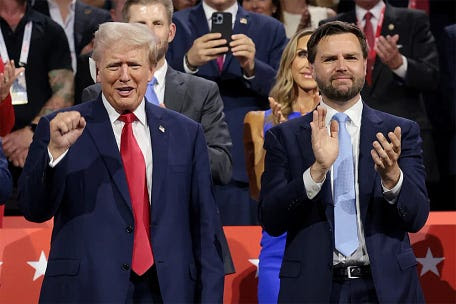By Qamar Bashir
President Donald Trump, while addressing American troops in Qatar, noted that Pakistan’s use of ‘a different kind of missile’ had forced India to request a ceasefire. He added that the United States would deepen trade ties with Pakistan and urged American institutions to accelerate commercial engagement. In a rare moment of unqualified praise, Trump described Pakistanis as "brilliant people" who invent and produce cutting-edge technology—a clear nod to Pakistan's domestic defense industry and scientific acumen.
After years of strategic neglect, Pakistan has reemerged in U.S. foreign policy considerations. The war with India in May 2025 served as a turning point, forcing a global reassessment of South Asia’s power dynamics. Trump’s repeated positive mentions of Pakistan reflect a recalibrated U.S. outlook, acknowledging Pakistan’s growing relevance in regional and international affairs.
The four-day war not only redrew the strategic map of South Asia but also laid bare two
starkly contrasting global narratives. India—long portraying itself as a rising
superpower—found its arrogance, militarism, and misinformation unraveling before the
world. Pakistan, in contrast, emerged as a composed, competent actor, commanding
military respect and diplomatic credibility.
India entered the conflict with misplaced confidence, believing its large defense budget,
international lobbying, and media dominance would shield it from scrutiny. But its
assumptions quickly crumbled. Since the revocation of Articles 370 and 35A of the
Indian Constitution—unilaterally and in defiance of UN resolutions—India had adopted a
tone of supreme arrogance. That arrogance culminated in the May 2025 aggression, when
India, without presenting irrefutable evidence, blamed Pakistan for the Pahalgam attack
and launched missile strikes on Pakistani territory.
India's gambit backfired. For the first time in decades, the world refused to parrot India's
"terrorist state" label for Pakistan. Instead, New Delhi's actions were seen as a unilateral,
unprovoked act of war. The Kashmir issue, long buried under media blackouts and
military occupation, reemerged on the global agenda. Trump himself declared that
resolving the Kashmir dispute was essential for sustainable peace in the region.
India’s efforts to diplomatically isolate Pakistan not only failed but boomeranged. Major
global powers—excluding perhaps Israel—remained neutral or subtly critical of India's
conduct. Russia, the United States, and European nations refrained from backing New
Delhi. Even traditional allies in the Gulf and the broader Muslim world declined to
endorse India's narrative. International media questioned India’s disinformation, timing,
and lack of credible evidence. Even strategic allies like the U.S. and Russia withheld
support during India's military debacle.
Politically, the impact was severe. Prime Minister Narendra Modi's once mythic stature
among Hindu nationalists eroded rapidly. Calls for his resignation grew louder, and the
opposition, civil society, and independent media demanded accountability. Globally,
Modi's image suffered irreparable damage, with analysts condemning his militarized
policies, suppression of minorities, and use of conflict for electoral gains.
In contrast, Pakistan earned global admiration for its restraint, precision, and strategic
maturity. Its missiles hit key Indian military targets while sparing civilian areas—a
combination of tactical brilliance and moral responsibility. Pakistan's electronic warfare
systems also rendered India’s expensive defense hardware ineffective, showcasing its
technological edge.
Diplomatically, Pakistan performed with poise. China and Turkey openly supported it,
while countries from Africa to Southeast Asia celebrated its victory. The United States
and Western allies, though silent, acknowledged Pakistan’s competence by their inaction
in support of India. Pakistani officials, from the Prime Minister to military spokespeople,
engaged transparently with the media, offering facts and fielding difficult questions—in
sharp contrast to India's evasive and scripted responses.
International media recognized this openness and began to shift their tone. Pakistan, once
portrayed as unstable and aggressive, was now seen as principled, disciplined, and
transparent. Its moral standing improved as it framed its response within the bounds of
international law and emphasized civilian protection.
Domestically, Pakistan witnessed a rare moment of unity. Citizens of all ethnic, religious,
and political backgrounds rallied behind their armed forces. The war became a catalyst
for national pride, reinforcing belief in self-reliance, technological capability, and
institutional strength. Even opposition parties praised the government and military for
their coordinated and effective response.
Crucially, Pakistan used this momentum to reignite global focus on Kashmir. With
Trump endorsing mediation, Pakistan gained diplomatic traction. Its dignified wartime
conduct and consistent call for peace lent it moral and political capital it had long sought.
This war did not last long, but its consequences will resonate for decades. India’s image
as a stable democracy and rising power has been seriously undermined. The myth of
Pakistan as a rogue state has been debunked. What remains is a clearer understanding:
arrogance is not strategy, propaganda is not policy, and suppression is not victory.
As one oversees patriotic Pakistani Mr. Mubeen Ahmed Qureshi put it, this strategic
space, created by the collective national resolve that defeated a far larger and better-
equipped adversary, gives every reason for Pakistan to celebrate. But more importantly,
Pakistan must seize this moment—not just to revel in triumph but to take a step back,
identify its political, economic, financial, trade, and investment roadblocks, and with the
same spirit it fought the war, begin to put its house in order. Only then can Pakistan
reemerge as a significant regional and global player—not only militarily, but across all
elements of national power.
The war has redrawn South Asia’s narrative landscape. The world must now reckon with
a new geopolitical truth: Pakistan is no longer the problem—it is part of the solution.
Meanwhile, unless India reforms its policies, rhetoric, and regional behavior, it risks
becoming its own worst enemy.




